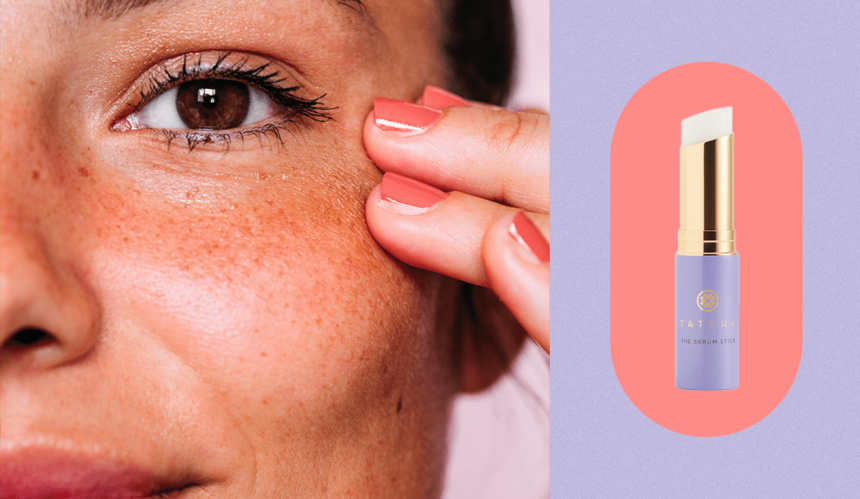As the winter season approaches, many of us are familiar with the struggle of dry, flaky skin that seems impossible to hydrate. Finding the right products to combat this issue can be a daunting task, especially when nothing seems to work. That’s where Tatcha’s dewy skin products come into play, promising to provide the hydration our skin craves during the colder months.
Initially skeptical of the hype surrounding Tatcha’s products, I decided to give the dewy serum, skin cream, and serum stick a try. Before diving in, I sought advice from board-certified dermatologist Dr. Rachel Nazarian, who shed light on the benefits of these products.
The key to Tatcha’s dewy skin care line lies in its ability to maintain moisture, according to Dr. Nazarian. The combination of hyaluronic acid, squalane, antioxidants, and anti-inflammatory extracts in these products work together to keep the skin hydrated and radiant. Plus, the fact that these products are bundled together at a discounted price makes them even more appealing.
After incorporating Tatcha’s products into my skincare routine, I was pleasantly surprised by the results. Within just a few days, my dry patches began to vanish, and my skin looked noticeably more radiant. The dewy glow I had been missing since summer was finally restored, without any greasy or heavy residue.
Dr. Nazarian explained that the ingredients in Tatcha’s products mimic those naturally found in the skin, making them effective in maintaining moisture levels. The lightweight yet powerful formulas made it easy for me to incorporate these products into my daily routine, providing intense hydration with just a few simple steps.
What sets Tatcha’s dewy skin set apart is its ability to keep my skin glowing throughout the day, even as the temperatures drop. Whether I’m starting my morning with the dewy serum, applying the skin cream, or using the serum stick for a midday refresh, my skin feels nourished and revitalized.
In conclusion, Tatcha’s dewy skin set has become my go-to solution for combating dry winter skin. If you’re looking for a skincare regimen that will keep your skin hydrated and glowing this season, Tatcha’s products might just be the answer you’ve been searching for. Give them a try and say goodbye to dry, flaky skin for good. The world of technology is constantly evolving, with new innovations and advancements being made every day. One of the most exciting developments in recent years is the rise of artificial intelligence (AI). AI is a field of computer science that aims to create machines that can perform tasks that typically require human intelligence, such as speech recognition, decision-making, and problem-solving.
One of the key areas where AI is making a significant impact is in the field of healthcare. AI has the potential to revolutionize the way we diagnose and treat illnesses, making healthcare more efficient, accurate, and personalized. Here are some ways in which AI is transforming healthcare:
1. Diagnostics: AI algorithms can analyze medical images, such as X-rays, MRIs, and CT scans, to detect abnormalities and diagnose diseases. These algorithms can often detect subtle patterns and trends that human doctors may overlook, leading to earlier and more accurate diagnoses.
2. Treatment planning: AI can help doctors develop personalized treatment plans for patients based on their individual health data. By analyzing a patient’s medical history, genetic information, and other factors, AI algorithms can recommend the most effective treatment options, improving outcomes and reducing side effects.
3. Drug discovery: AI is being used to accelerate the drug discovery process by analyzing vast amounts of data to identify potential drug candidates. This can help pharmaceutical companies bring new drugs to market faster and more cost-effectively, ultimately benefiting patients with new and improved treatment options.
4. Remote monitoring: AI-powered devices, such as wearable sensors and mobile apps, can continuously monitor patients’ vital signs and health data in real-time. This remote monitoring can help doctors track patients’ progress, detect early warning signs of health problems, and intervene quickly if necessary.
5. Predictive analytics: AI can analyze large datasets to predict trends and outcomes in healthcare, such as disease outbreaks, patient outcomes, and treatment effectiveness. This can help healthcare providers make more informed decisions and allocate resources more effectively.
While the potential benefits of AI in healthcare are immense, there are also challenges and ethical considerations to consider. These include concerns about patient privacy, data security, and the potential for bias in AI algorithms. As AI continues to advance, it will be important for regulators, healthcare providers, and technology developers to work together to ensure that AI is used responsibly and ethically in healthcare.
Overall, AI has the potential to transform healthcare in ways we have never seen before. By harnessing the power of AI, we can improve patient outcomes, reduce healthcare costs, and ultimately save lives. The future of healthcare is bright with AI leading the way.







